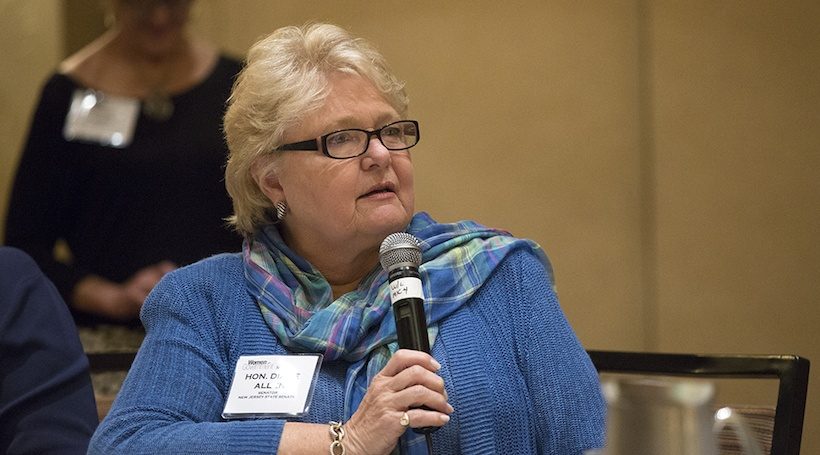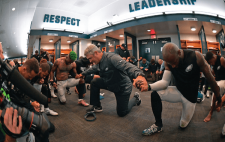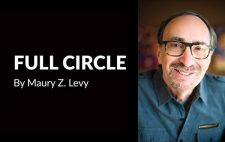After serving 20 years as a Republican state senator, Diane Allen, 69, is moving on. She hates the divisiveness, negativity and vitriol of today’s political climate but, she says, she has loved serving her constituents.
Allen sees a “troubled” political system and her plan to fix it starts with electing more women. She travels around the country, speaking about the importance of women in politics. While women comprise 50.6 percent of the U.S. population, in 2017, only 19.6 percent – 105 women – held seats in Congress. When she leaves office on Jan. 9, she plans to devote her time to writing a book about getting more women into office, a topic she is passionate about.
Why would more female politicians make a difference?
Allen: We women tend to reach across the aisle, to try to get something done rather than talk about it loudly on the floor. Here’s an example: a couple years ago, the federal government shut down. While the men were screaming back and forth and fingers were being pointed, a number of female U.S. senators – Democrat and Republican – got together in a back room, solved the problem, and the government started operating again. They just had to sit down and talk about it. We seem, as women, to be able to do that a little more easily.
What strides have you seen for women over the two decades you held office?
Allen: When I was first elected to office, domestic violence wasn’t seen as much of a crime, and laws were not in favor of women who were being battered. Those laws had to be changed. Just look at what’s going on right now with sexual assault. It’s been going on for decades, but it was just “boys will be boys.” Of course, many women realized how horrific this was, but we weren’t able to get the focus on it. If we’d had 50 percent women in government, this would have been dealt with decades ago.
What do you consider your greatest accomplishment?
Allen: In general, I’ve been willing to make a difference in people’s lives. An example is The No Early Release Act. Before that, people who had a 15-year sentence were out in two or three years. A man who had been involved in a violent robbery was in jail, got out quickly, and within days, murdered his girlfriend and raped her child. I couldn’t believe this clearly violent person was let out like that. I spearheaded a change in the law that said you have to put in 85 percent of your sentence before you can even be considered for parole if you’re a violent offender.
What surprised you the most about politics?
Allen: I never saw this as something I would do for so long. But I had things that were unfinished, so I kept doing it. As for the politics, I was very disappointed to find that both parties, from time to time, put politics ahead of the people.
What are your thoughts about our current political climate?
Allen: There are people in Congress and the state legislatures who do cross the aisle. The problem is, the media covers the loudmouths who like to be out there with their slings and arrows and vitriol. Sadly, we all listen to that and think we’re all going to hell in a handbasket. In Washington, there are those who are playing politics and not doing the people’s business. Politics gets in the way of us actually accomplishing what we must do. The president isn’t helping things with his constant tweets and sometimes nasty things that he says. Things would go much more smoothly if we did things in a more quiet and strong way.
You credit Chris Christie with saving your life. How so?
Allen: He was choosing who was going to run with him as Lt. Governor back in 2009. At the time, I had a little red thing on my tongue. He chose Kim Guadagno, somebody who has become a very good friend of mine. When all that was done, my tongue was bothering me, so I got it checked. It turned out I had oral cancer. If I had been chosen by the governor to run with him, I wouldn’t have had an instant to think about it until after the campaign. By then, it probably would have been too late.
Can you talk about what you went through?
Allen: I’m smiling because you say, “Can you talk about it,” and the amazing thing is that I can talk. Every doctor told me that I would never speak normally again. So, we really tried to prepare for that. I did a tape recording of me reading books for my young grandsons. When I went into surgery, they made a mark on my wrist of where they were going to take a muscle to replace part of my tongue and a mark on my leg where they were going to move a muscle to my wrist. And they decided they didn’t have to do that. They put me into speech therapy, and if I get tired I get a little slurry, but it’s not much to deal with at all.
As one of the first female TV news anchors, did you experience sexism?
Allen: My first job was in radio at a small station. I was 21. The station Christmas party was held at the home of one of the owners. I was met at the door by the owner, and he had no pants on. What did I do? I went in, because I needed the job. I wanted the job, and I knew, as all women have always known, if I put up a big fuss I would not have a job. There was a room at the party where pornography was being shown, but I did not have to go into that room. There were very few women there and people laughed at it. I didn’t think it was funny.














